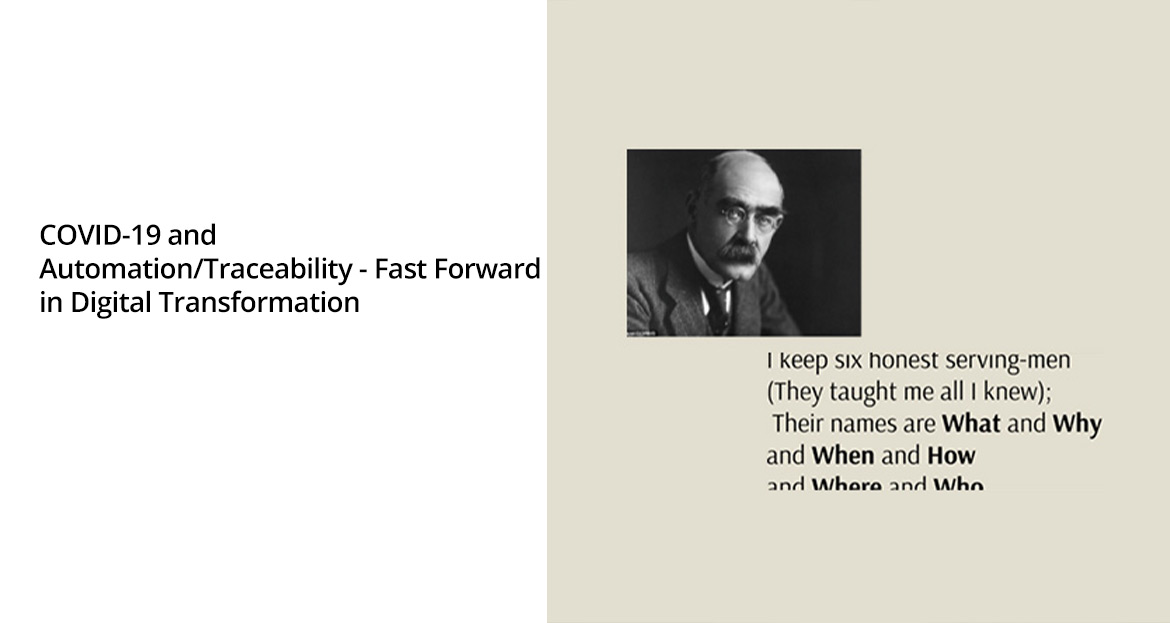
COVID-19 and Automation/Traceability: Fast Forward in Digital Transformation
About 6 months ago, we were getting news of an epidemic on the other side of the world from the international press, but we were forgetting about globalization and living with the perception that this problem would not affect us.
Then one day COVID19
The epidemic knocked on our door and sent us home and ordered us to live from home, at least for a while.
What about our jobs, workplaces, factories, banks? What would they be?
That's where the difficulties started right away.
Decision makers who have not met or have met with concepts such as Digital Transformation, Industry 4.0, Artificial Intelligence, which have become fashionable in recent years, or have already met but have not yet implemented them,
and follow a wait-and-see policy, have to stay at home and work remotely.
When they had to and could not manage their business remotely in their workplaces, they saw bitterly that they were late in the change.
The prediction that is accepted by everyone is clear:
The COVID-19 pandemic will require a very rapid digital transformation, which is progressing slowly in all sectors…
The question is how this will happen, some big companies that have been proactive have easily overcome this situation and gained an advantage in the race, companies that have been reactive until now and now have to go through
digital transformation to survive
on the other hand, they will grapple with both the post-pandemic recovery and the pains of transformation.
General mistake made; seeing this change as just a technology update or a purchasing problem and not knowing where to start...
It may not be a bad idea to use the 5N1K method, which even some journalists forget today, in order to determine the priorities correctly in order to get immediate efficiency in the transformation, and to quickly identify the
existing problems.
In order to get quick answers to 5W1K questions, to ensure traceability of processes, to use error-free and fast data collection technologies and to benefit from the collected data.
In addition, instead of setting very big goals, it may be wise to go for simplification that will speed up the flow in priority processes and to turn to solutions with low CAPEX costs such as cloud technology brought by modern
technology
The payback of digital transformation will offset this already delayed investment for the business.
I keep six honest servants:(They taught me all I know)
Their Names What and Why and When
And How and Where and Who.
I send them by land and sea,
I send them east and west;
Only after it worked for me,
I'll let them all rest.
I'll let you nine to five.
Because I was busy back then,
Breakfast, lunch and tea time,
Because back then they were hungry:
Some may disagree:
I know a little one—
He has ten million servants,
He never lets them rest!
He sends them away for himself,
From the moment he opened his eyes—
One million How, two million Where,
And with seven million Reasons!
The Elephant's Child - Just So Stories by Rudyard Kipling